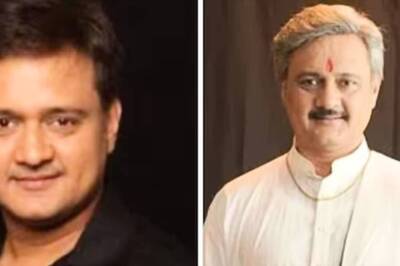
views
The Supreme Court Thursday sought response from the Centre and the Bar Council of India (BCI) on a plea seeking direction for issuance of handbooks on laws in "plain" English and vernacular language and usage of easily understandable language in drafting government rules.
A bench comprising Chief Justice of India SA Bobde, Justices AS Bopanna and V Ramasubramanian, issued notice to the Ministry of Law and Justice and the BCI on the plea. The petition, filed by advocate Subhash Vijayran, sought directions to the department of Justice for issuance of guides/handbooks of laws of general public interest in "plain" English and in vernacular so that layman can easily understand the law and procedure for vindication of their rights and redressal of grievances.
It also sought directions for usage of plain language, which was easily understandable by the layman, in drafting and issuing all government rules, regulations, notifications, communications etc, which were of interest to the general public. The plea further sought directions to the Bar Council of India for introduction of a mandatory subject of Legal Writing in Plain English in all law schools, in which law students would be taught to draft precise and concise legal documents in easily understable language.
It sought directions for imposition of page limit for pleadings and time limit for oral arguments in the apex court. It is time the standard of pleadings filed in the Supreme Court is mandated to be of the highest quality. Lawyers need to put in extra efforts and revisions to make their pleadings clear, crisp, concise & accurate. This would remove considerable burden off the judges, who otherwise have to struggle their way through a jungle of verbosity.
A page limit for pleadings and time limit for oral arguments should be imposed. Too much of precious time, energy and resources of both the court as well as lawyers/ litigants are wasted due to badly written and verbose drafts and ad-nauseam oral arguments, the plea said. It said that the steps would not only ensure speedy justice and reduce case pendency in the apex court, it would also help in dispensation of quality justice.
In a court, where litigants have to wait for 5-10 years for final hearing, we really don't have the luxury of hearing fancy and, many a times, irrelevant arguments for hours and days on end. We have to prioritize and efficiently use our resources. If this court is to be truly a court of the masses and not court of a fortunate few the era of never-ending oral arguments and verbose pleadings has to go, it added. It said that the writing of most lawyers was wordy, unclear, pompous and dull.
We use eight words to say what can be said in two. We use arcane phrases to express commonplace ideas. Seeking to be precise, we become redundant. Seeking to be cautious, we become verbose. Our writing is teemed with legal jargon and legalese. For whom are the Constitution, law and legal system for? For the lawyers? Or the judges? Or most important, but often neglected the common man. Yet, it is the common man who is most ignorant of the system in fact quite wary of it. Why? Because he neither understands the system nor the laws. Everything is so complicated and confusing. The way laws are enacted, practiced and administered in our country violates the fundamental rights of the masses by denying them access to justice, the plea said.
Read all the Latest News and Breaking News here



















Comments
0 comment